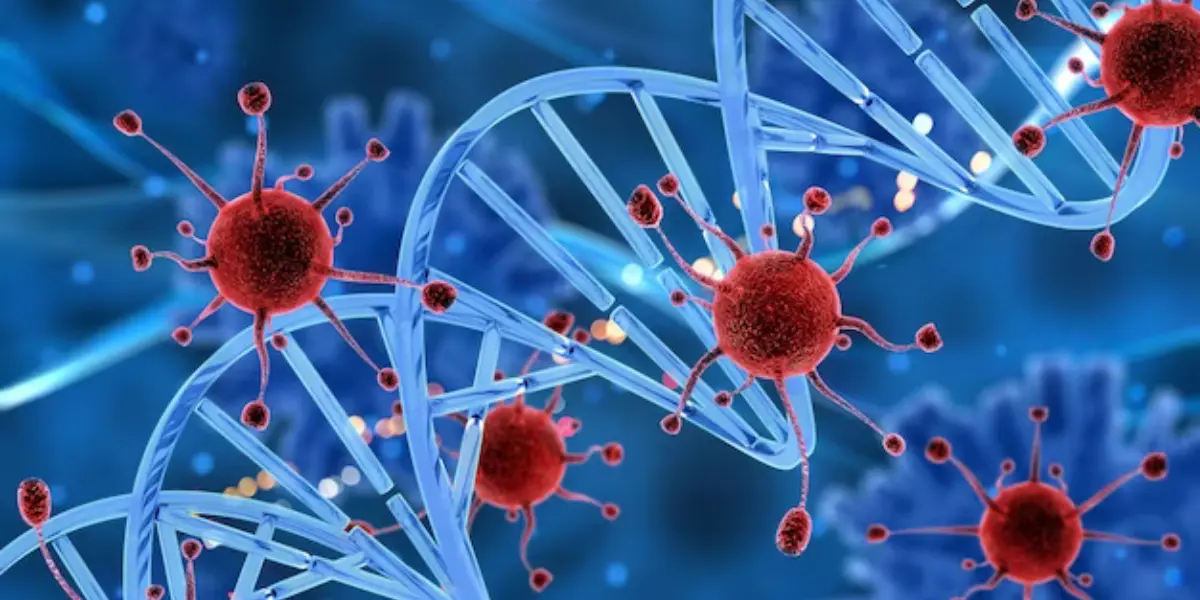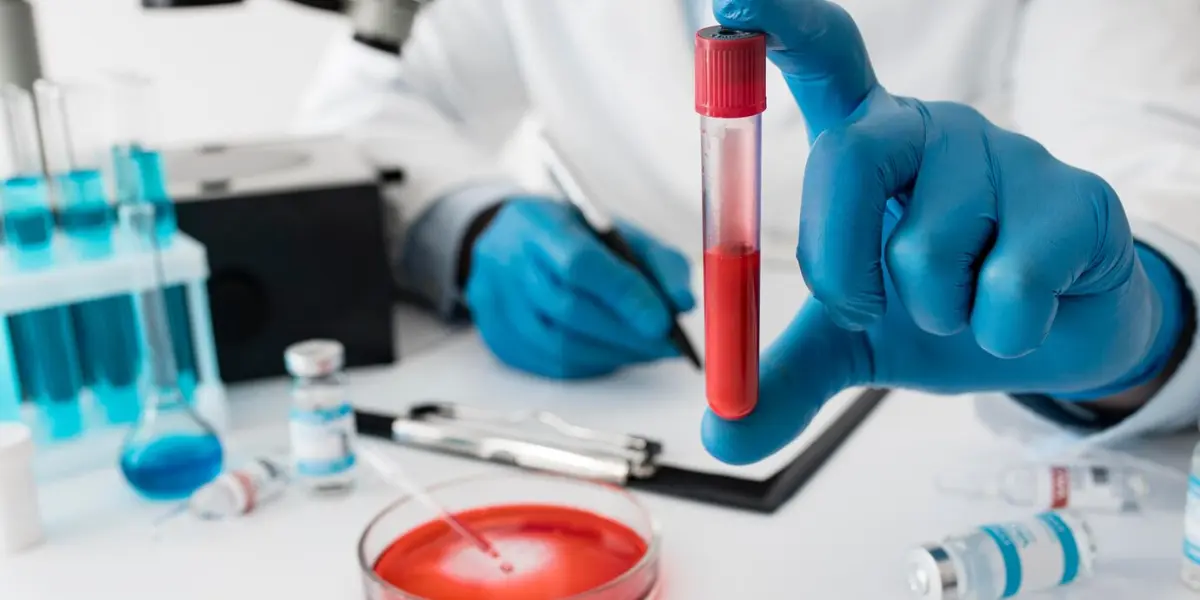Blood cancer stands as a formidable health challenge. It impacts the body’s ability to produce and maintain healthy blood cells. Blood cancer typically originates in the blood marrow, where the cells develop. Blood cancer disrupts this process critically.
The bone marrow is a spongy tissue inside the bones. It is crucial for producing stem cells. These cells mature into red blood cells for oxygen transport, white blood cells for fighting infections, and platelets for blood clotting. Blood cancer hampers this essential production.
Can You Live A Full Life With Blood Cancer? Impact Of Blood Cancer
In blood cancer, abnormal cells proliferate rapidly and outnumber healthy cells. This overproduction leads to weakened immunity, impaired oxygen transportation, and problematic blood clotting. It manifests in various health complications.

What Are The Three Types Of Blood Cancer?
- Leukemia: Leukemia spreads quickly. Its rapid production of abnormal white cells is notorious. It is further classified into acute and chronic forms, each with unique characteristics. For instance, Acute Lymphoblastic Leukemia (ALL) is more prevalent in children, While chronic Myeloid Leukemia (CML) often affects adults.
- Lymphoma: Lymphoma targets the lymphatic system and affects the immunity. The lymphatic system is a part of the immune defense. It is classified into Hodgkin Lymphoma, marked by Reed-Sternberg cells, and Non-Hodgkin Lymphoma. The latter is diverse and widespread.
- Myeloma: It focuses on plasma cells. Myeloma often leads to bone and kidney issues. Multiple myeloma is the most common and causes bone pain. It also affects calcium levels in the blood.
Cause And Symptoms Of Blood Cancer
Blood cancer symptoms can differ depending on the type, but several common signs are typically seen:
- Excessive Tiredness
- Continuous fever
- Intense sweating at night
- Bruising and Bleeding
- Weight loss
- Recurring infections
- Painful bones
- Bowel Leakage
Diagnosis Of Blood Cancer
When diagnosing blood cancer, doctors discuss your symptoms and medical history. They then conduct a thorough physical exam. Depending on the type of blood cancer suspected, they might order various blood tests and imaging scans to get a clear picture. Standard diagnostic tests include:
- CBC profile: This test evaluates the number and type of blood cells. In leukemia cases, for example, abnormal levels of white and red blood cells and platelets can be observed.
- Blood Chemistry Test: It checks for various substances in your blood, providing clues about your overall health and the presence of cancer.
- CT Scans: A series of X-rays combined with computer technology create detailed images of your soft tissues and bones. It is beneficial for detecting bone damage in Myeloma.
- MRI Scans: These scans offer thorough images of the body’s soft tissues. These tissues are helpful in spotting signs of Leukemia or Lymphoma, particularly in the spine.
- PET Scan: This imaging test shows how organs and tissues function. It helps locate Myeloma and other cancers.
- Biopsies: In this procedure, a sample of bone marrow is taken to look for abnormal blood cells and any genetic changes driving cancer growth.
- Examination of Blood Cell: A blood cell is closely examined under a microscope. It reveals changes, if any, in appearance that might hint at diseases like Leukemia or Lymphoma.
Treatment Of Blood Cancer
Treating blood cancer varies greatly depending on the patient and the type of cancer. Doctors consider several factors before deciding on the best course of action. Factors like age, overall health, the specific type of blood cancer, and the potential side effects of treatments are also considered. Following are some common treatment options:
- Chemotherapy: This is a widely used treatment for blood cancer. It destroys cancer cells, slows the disease’s progression, or even eliminates the tumor. The types of drugs used in chemotherapy can differ depending on the blood cancer being treated.
- Radiation Therapy: This method involves using radiation to target and damage the DNA of cancer cells specifically. It prevents them from multiplying and is often used to target Leukemia, Lymphoma, and Myeloma. It is used in combination with other treatments sometimes. Radiation also relieves specific symptoms.
- Immunotherapy: This approach leverages the patient’s immune system to combat cancer. It can either boost the production of immune cells or assist existing immune cells in identifying and destroying cancer cells.
- CAR T-Cell Therapy: In this advanced treatment, a type of white blood cell known as T-cell lymphocyte is modified to target and kill cancer cells more effectively. It is mainly used in cells where other treatments have not done well, such as in B-cell acute Lymphoblastic Leukemia, Multiple Myeloma, and some types of non-Hodgkin’s Lymphoma.
- Targeted Therapy: Unlike broader treatments, targeted therapy targets specific genetic mutations that transform normal cells into cancerous ones.
- Autologous Stem Cell Transplant: A patient’s bone marrow stem cells can be collected and stored before intensive chemotherapy. After chemotherapy, these cells are returned to the patient’s body. These cells help reduce some of the side effects of chemotherapy.
- Allogeneic Stem Cell Transplant: Sometimes, a patient’s damaged bone marrow needs to be replaced with a healthy one from a donor. It is a complex and risky procedure. However, it can prove to be effective in treating the cancer.
Treatments are highly selective and depend on the type and stage of cancer. The doctors also consider a patient’s overall health before starting any treatment. Standard treatments include chemotherapy.
Important Of Timely Medical Intervention
It is important to consult a doctor if symptoms persist or if significant changes in health are noticed. Early diagnosis can lead to effective treatments and better outcomes.
Personalized Medicine
Personalized medicine is revolutionizing blood cancer treatments. Targeted therapies and precision medicine approaches are increasingly used to improve outcomes and reduce side effects.
Life With Blood Cancer
Patients need unwavering support to manage the physical and emotional challenges posed by Blood Cancer. This support may include pain management, psychological counseling, and support groups.
Advancement In Blood Cancer Research
Continual research is leading to innovative treatments like immunotherapy and gene editing. These advancements promise successful, less evasive treatments and offer hope to patients worldwide.
Also Read:- Lung Cancer: Symptoms, Causes, Prevention, Treatment

The Takeaway
Lastly, Blood cancer is a very complex condition. However, with early detection and specific treatments, it can be managed. With ongoing advancements in medical science and improved treatment options, Blood Cancer patients have a brighter outlook than ever before.
References:
- Churpek JE. Familial myelodysplastic syndrome/acute myeloid leukemia. (https://pubmed.ncbi.nlm.nih.gov/29156196/) Best Pract Res Clin Haematol. 2017;30(4):287-289. Accessed 5/18/2022.
- National Cancer Institute (2021, October 1). Acute Myeloid Leukemia Treatment (PDQ®)–Patient Version.
https://www.cancer.gov/types/leukemia/patient/adult-aml-treatment-pdq#_1 - American Cancer Society (2018, January 22). What Are Myelodysplastic Syndromes?
https://www.cancer.org/cancer/myelodysplastic-syndrome/about/what-is-mds.html